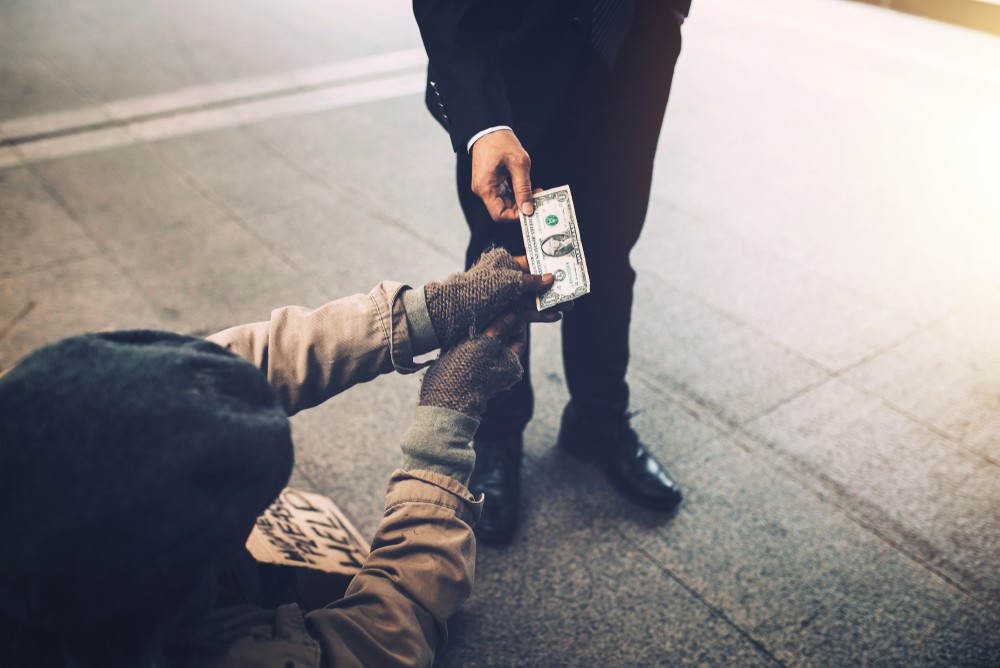In my last column, I discussed the coming war on men and women who work, save and invest.
You probably view those activities as not only harmless but beneficial. You’re right, of course.
But that’s not how others see it.
If you save and invest, your net worth and financial security will rise substantially over time.
This isn’t just positive. It’s life-changing.
Yet the more successfully you invest, the less others (who don’t save or invest) will have by comparison.
Some call this economic inequality. But let’s call it by its real name: envy, the dumbest of the seven deadly sins.
I say that because the other six – sloth, lust, gluttony, etc. – provide at least momentary satisfaction.
Envy? None whatsoever.
Yet demagogues have found a way to use some people’s resentment and discontent to further their own political careers.
Here’s how it works…
Life is not fair. That’s a given.
Yet these politicians can’t take Brad Pitt’s good looks and redistribute them. They can’t confiscate Lebron James’ athletic prowess and spread it around.
What they can do is take what you’ve spent a lifetime earning and nurturing to achieve financial independence and turn it into a game of class warfare to win votes.
This isn’t just wrong. It’s corrupt.
Why? Because economic inequality in this country is a completely bogus issue.
Before anyone’s wig hits the ceiling, let me explain why…
Poverty is a serious issue. Social mobility – the ability to rise into the upper ranks in terms of income and net worth – is another legitimate concern.
But the fact that Oprah Winfrey and Jeff Bezos have a lot more money than you? That’s a make-believe problem that people invent in their heads.
There is no argument against great wealth in a country where everyone has a sufficiency.
This is a key point, so I’ll say it again. There is no argument against great wealth in a country where everyone has a sufficiency.
What is a sufficiency?
It’s not when you or I no longer want more. (Few are enlightened enough to ever reach that point.) It’s when people have enough to be reasonably content without more money than they have.
The poor in this country easily meet that standard. By historical standards, they are filthy rich.
Most Americans living under the poverty line today, for example, live in larger accommodations than the average European.
Throughout human history, being poor meant struggling to get enough calories to survive. Today we have the opposite problem. Obesity – and, in particular, morbid obesity – has created a healthcare crisis among the poor, who consume too many empty calories.
The average person living below the poverty line in the U.S. today has a smartphone, a television, indoor plumbing, central heat and a car. A hundred and fifty years ago, the richest robber barons could not have dreamt of such wealth.
Those living below the poverty line today receive food stamps, Medicaid, supplemental security income, housing assistance, the earned income tax credit and other welfare benefits.
No one in this country needs to go hungry or live on the streets. (The ones you see there generally suffer from drug or alcohol problems and/or some form of mental illness.)
Don’t get me wrong. I’m all for alleviating poverty through education, incentives and a robust social safety net. But economic inequality is not about poverty. It’s about the supposed “unfairness” of some people having more than others, regardless of the habits and behavior that created that result.
High-income households, for example, tend to have more workers. Most work longer hours. And if they save and invest, their household net worth is higher too.
Unequal does not necessarily mean unfair.
Take a millionaire and a billionaire, for example. Someone with a billion dollars has a thousand times more than someone with a million dollars.
That is highly unequal. But it doesn’t cost you a minute’s sleep. Why? Because someone with a million dollars has a sufficiency.
When the financial crisis and Great Recession hit a decade ago, people who had invested in stocks and real estate saw their household net worth crushed.
That made them much more equal with folks who saved nothing. Was that a good thing for our society?
Of course not.
Notice, too, that there is very little economic inequality in North Korea, Cuba and Venezuela.
Why? Because their citizens are equal in their misery.
Look around the world and you’ll find that the poorest countries are the most equal and the least free, while the freest countries are the richest and most unequal.
When someone argues for more economic equality, understand that they are really arguing for less freedom.
The goal is to punish those who have worked, saved and invested, and reward those who have not – a substantial percentage of Americans – through heavy-handed regulation and punitive taxes on investments.
We see this with the double taxation of corporate profits. (They are taxed first at the business level, then again when they are distributed to you as dividends or capital gains.)
We saw this with former President Barack Obama’s 3.8% surtax on dividends and capital gains.
And we’re seeing it now with Sen. Elizabeth Warren’s intrusive Accountable Capitalism Act, a piece of political thuggery masquerading as enlightened corporate governance.
As an investor, however, there are effective ways to fight back. In my next two columns, I’ll explain how.
Good investing,
Alex
